Title: Point-of-Care COVID-19 Diagnostics: Understanding Performance Metrics and Creating Practice Guidelines
Presenter: Dr. Gerald Kost
Title: Point-of-Care COVID-19 Diagnostics: Understanding Performance Metrics and Creating Practice Guidelines
Presenter: Dr. Gerald Kost
UofM Receives $5.9 Million NIH Grant for a National Center in AI-based mHealth Research
mDOT: Transforming health and wellness via temporally precise mHealth interventions
National Institutes of Health (NIH) has awarded a new national biomedical technology resource center (BTRC), called the mHealth Center for Discovery, Optimization & Translation of Temporally-Precise Interventions (mDOT). mDOT will be headquartered at the MD2K Center of Excellence at the University of Memphis.
Congratulations to Prof. Moushumi Sharmin on being awarded early tenure at Western Washington University. We are glad that during her two years as a postdoc with MD2K, she discovered new research directions in mHealth and new expertise in mobile sensor big data. The MD2K Center is very proud of her success.
mContain: Get the app at www.mcontain.org or by using this direct link on your Android device (iOS version coming soon)
Researchers at the MD2K Center of Excellence, headquartered at the University of Memphis, announce the launch of a free mobile app called mContain to help track social distancing during the COVID-19 outbreak with a goal to reduce community transmission.
Title: Cerebral Cortex: An Open-Source Platform for Computational Modeling of High-Frequency Data
Presenter: Dr. Nasir Ali & Dr. Timothy Hnat
Title: Optimizing Behavioral mHealth Interventions: What Does Control Systems Engineering Have To Offer?
Presenters: Dr. Daniel Rivera
Title: Moving Beyond User-Centered Design to Improve Population Health
Presenters: Dr. Karen Fortuna & Mr. Robert Walker
Title: Who is in your data? Data and Machine Learning Limitations in Health Research
Presenter: Dr. Elaine Nsoesie
Title: Amulet and Auracle: Wearable Platforms for mHealth Research
Presenter: Dr. David Kotz
Applications are now being accepted for the 2019 mHealth Training Institute (mHTI) to be held at the University of California, Los Angeles from July 28 – August 2, 2019. The week-long, immersion program blends “deep dives” into the latest mHealth methodologies with team-science projects to provide the selected scholars with the transdisciplinary competencies and collaborations required to tackle “wicked” healthcare problems.
The 2019 mHTI builds on the successes of previous mHTIs. Scholars from earlier institutes have highlighted a wide range of benefits, describing the mHTI as “transformative” and “a seminal experience in my professional development” with a “wonderful atmosphere and congeniality among scholars” and “terrific and generous faculty.” Independent post-institute surveys typically garner the highest ratings in terms of scholar satisfaction. Details of previous mHealth Training Institutes including scholars, faculty, and programs are available at: https://mhealth.md2k.org/training/mhealth-training-institute.html.
Title: Predicting mental health and measuring sleep using machine learning and wearable sensors/mobile phones
Presented by: Akane Sano of Rice University
Date: Dec. 6, 2018
About the webinar:
This seminar highlights lessons learned from ambulatory studies for collecting continuous multi-modal human data and analysis & modeling for health, wellbeing and performance. The talk will provide an overview of the objectives of the studies, challenges faced in human daily life data collection and analysis using surveys, wearable sensors and mobile phones, and some key findings focused on detecting sleep patterns and detecting and forecasting mood changes using machine learning.
Researchers at the Center of Excellence for Mobile Sensor Data-to-Knowledge (MD2K) recently published two papers that showcase new capabilities of wearable sensors to automatically monitor conversation and TV watching. Both of these are frequent daily behaviors that have a major impact on social well-being and physical and mental health.
rConverse: Moment by Moment Conversation Detection Using a Mobile Respiration Sensor (citation below) presented a new way for researchers to passively monitor speaking and listening states in a conversation by analyzing breathing patterns captured by a wearable respiration sensor. Researchers showed that they can detect conversation with a similar accuracy as that from widely used audio recordings.
The epidemic of prescription opioid abuse and resulting increase in overdose deaths is a costly one. In 2015, problems from opioid abuse cost the U.S. economy nearly $504 billion, a six-fold increase from 2013. Doctors find themselves on the front lines of this crisis, but there is little data available to help them identify patients at increased risk of having problems with long-term use of prescribed opioids for pain.
Scientists at the Center of Excellence for Mobile Sensor Data-to-Knowledge (MD2K) and Johns Hopkins University School of Medicine have received a new supplement grant from the National Institutes of Health (NIH) to identify modifiable risk factors (observable using mobile sensors) that can be targeted for prevention in patients with chronic pain. NIH, which originally funded MD2K in 2014, earlier this year announced the HEAL initiative to “speed scientific solutions” to stem the opioid crisis.
The National Science Foundation (NSF) has awarded $1.75 million to the Center of Excellence for Mobile Sensor Data-to-Knowledge (MD2K) to increase the impact of its software infrastructure by enabling and accelerating research by the scientific community in sensor design, mobile computing, privacy, data analytics and visualization.
Called mResearch, the project will enable Computer and Information Science and Engineering (CISE) researchers to deploy their innovative software in scientific studies on health, smart homes and the workplace via the enhanced MD2K e-platform. The resulting discoveries and tools will help individuals improve their health, wellness, and work productivity.
Dr. Leroy Hood, a member of all three national academies and recipient of National Medal of Science for his pioneering work on systems medicine, will be delivering a public keynote speech at the University of Memphis, FedEx Institute of Technology on October 1st at 5:00 p.m. A strong advocate for P4 healthcare – healthcare that is predictive, preventive, personalized and participatory -- Hood will be in Memphis to participate in the fifth annual meeting of the NIH-funded Center of Excellence for Mobile Sensor Data-to-Knowledge (MD2K).
Hood is Senior Vice President and Chief Science Officer for St. Joseph Health, and Chief Strategy Officer, Co-founder and professor at the Institute for Systems Biology in Seattle. He contributed to the development of the instruments that ushered in the era of big data in biology and medicine as well as the human genome program.
The mHealth Training Institute (mHTI), which seeks to train the next generation of experts in mobile health (mHealth), was held July 29-August 3 at the University of California at Los Angeles. mHTI is funded by the National Institutes of Health and co-sponsored by the Center of Excellence for Mobile Sensor Data-to-Knowledge (MD2K).
The mHealth field crosses many disciplines – medicine, computer science, engineering, behavioral science, statistics, to name a few. To take advantage of the opportunities that are available due to the increased use of mobile sensors in devices like smartphones and activity trackers, scientists from these disparate disciplines need to work together and eliminate the gap between technology development and their adoption for health research and health care.
The MD2K Center partnered with the National Institutes of Health (NIH) to organize a technology showcase at the NIH campus in Bethesda, Maryland, where scientists presented mHealth technology and research developed over the past decade. Attended by researchers from academia, government, and industry, the event featured 66 technology demonstrations and posters selected from a pool of nearly 200 applicants.
Mobile sensor big data has been used by hundreds of scientists across the country to discover new biomarkers and to get new insights into daily behaviors. Now, individuals — citizen scientists — will be able to engage in the same kind of discovery using their own data.
A personal edition of the software platforms, developed by the Center of Excellence for Mobile Sensor Data-to-Knowledge (MD2K), will allow anyone with an Android smartphone to collect, analyze and visualize their own mobile sensor big data while retaining their privacy since the data never leaves their own devices. Using the personal edition of mCerebrum (for Android smartphones) and Cerebral Cortex (for personal computers) gives them access to a wide variety of novel biomarkers (such as stress, mobility, workplace behaviors). These biomarkers have been discovered by analyzing hundreds of terabytes of mobile sensor data collected from thousands of participants in research studies all over the country.
"Visual Exploration of Smoking Cessation Data," a webinar describing a visual analytics system for exploring large datasets will be presented at 2 p.m. CT on Wednesday, Feb. 7 by Polo Chau and Moushumi Sharmin of the MD2K Center.
About the webinar
Part 1: Discovery Dashboard
Drs. Chau and Sharmin will present Discovery Dashboard [1], a visual analytics system for exploring large volumes of time series data from mobile medical field studies, in the web-browser and in real time. Discovery Dashboard offers interactive exploration tools and a data mining motif discovery algorithm to help researchers formulate hypotheses, discover trends and patterns, and ultimately gain a deeper understanding of their data. They will demonstrate their system visualizing data from a mobile sensor study conducted at the University of Minnesota that included 52 participants who were trying to quit smoking.
Software platforms built by the the Center of Excellence for Mobile Sensor Data-to-Knowledge (MD2K) are being used in scientific field studies in 11 states to develop and validate new biomarkers for monitoring and improving health, wellness, and productivity. The mobile sensor data collected are expected to produce new markers for management of congestive heart failure, smoking cessation, regulation of overeating, oral health management, workplace performance monitoring, and behavior change. These studies are expected to enroll 2,000+ participants, collect 100,000+ person-days of high-frequency sensor data, and produce over 4.7 trillion data points.
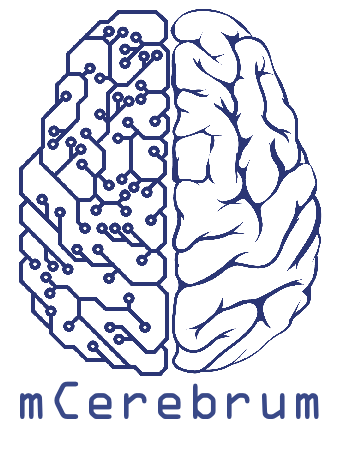 Key to the development and validation of new sensor-based markers is the ability to collect, analyze, and store high-frequency mobile sensor data with associated labels in field environments. The MD2K team demonstrated, at two high-profile international venues, that its mCerebrum platform for smartphones can collect streaming sensor data concurrently from dozens of wearable sensors at rates exceeding 9,000 samples per second. Compared with other, similar platforms, mCerebrum supports data rates that are 1.5 times higher and storage throughput that is 4.3 times higher, yet has a CPU usage rate that is 8.4 times lower in order to conserve a smartphone’s battery life.
Key to the development and validation of new sensor-based markers is the ability to collect, analyze, and store high-frequency mobile sensor data with associated labels in field environments. The MD2K team demonstrated, at two high-profile international venues, that its mCerebrum platform for smartphones can collect streaming sensor data concurrently from dozens of wearable sensors at rates exceeding 9,000 samples per second. Compared with other, similar platforms, mCerebrum supports data rates that are 1.5 times higher and storage throughput that is 4.3 times higher, yet has a CPU usage rate that is 8.4 times lower in order to conserve a smartphone’s battery life.
Stephen Intille of Northeastern University will give a webinar on "Improving Behavioral Measurements from Mobile Devices 1-2 p.m. CT on Thursday, Dec. 7.
About the webinar:
Automatic interpretation of sensor data is creating exciting opportunities for “just-in-time” behavioral measurement and intervention. However, to fully develop new context-sensitive or behavior-sensitive technologies requires improved methods for gathering and interpreting temporally-dense behavior, state, and context data. Intille will discuss some of his research group’s work on automatic recognition of physical activity from passive mobile motion (accelerometer) sensors. That has motivated new work exploring the interruption burden of self-report and microinteraction-based ecological momentary assessment (“micro” EMA, or µEMA) using smartwatches, where self-report questions can be answered with a quick glance and a tap – nearly as quickly as checking the time on a watch.
Research in mobile health (mHealth) is a multidisciplinary effort, and that is never more evident than when (over 70) students, faculty, and postdocs from 14 institutions come together at University of Memphis to participate in the annual meeting of the Center of Excellence for Mobile Sensor Data-to-Knowledge (MD2K). The two-day meeting for 2018 was held on Oct. 24-25 at FedEx Institute of Technology (FIT). The meeting witnessed presentations of research and training and concluded with a special event to provide career advice to new graduates.
Two of the many sensors showcased during the MD2K Annual Meeting were MotionSense HRV and EasySense, both designed by MD2K.
Four papers co-authored by researchers at the Center of Excellence for Mobile Sensor Data-to-Knowledge (MD2K) were presented last month at the International Joint Conference on Pervasive and Ubiquitous Computing (UbiComp 2017). held in Maui, Hawaii.
Each of the papers dealt with a different aspect of mobile health (mHealth) research: user engagement, visual analytics, eating detection, and detection of fatigue using computational eyeglasses. In its fourth year of NIH-funded research, MD2K researchers have had more than 200 papers and articles accepted for publication.
A Career Day featuring panelists from a variety of disciplines will be held Oct. 25, in conjunction with MD2K's 2017 Annual Meeting.
Career options for those earning doctoral degrees are varied and extend far beyond traditional academic trajectories. A recent graduate can find themselves with options in several tracks, ranging from academia to industry to government.
MD2K is holding this career day to help recent and future graduates to make informed decisions and to strengthen their applications. Two panels will be discuss the various career paths, their prospects and tradeoffs, and the future directions these choices could lead to.
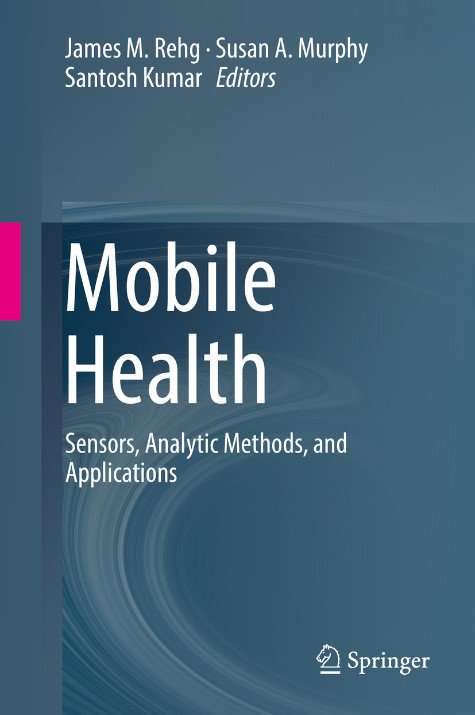 Three members of the research team at the Center of Excellence for Mobile Sensor Data-to-Knowledge (MD2K) are editors of a new mHealth textbook released recently by Springer.
Three members of the research team at the Center of Excellence for Mobile Sensor Data-to-Knowledge (MD2K) are editors of a new mHealth textbook released recently by Springer.
Mobile Health: Sensors Analytic Methods and Applications, provides a comprehensive look at the current state-of-the-art in mHealth technology that is accessible to technology-oriented researchers and practitioners who have backgrounds in computer science, engineering, statistics and applied mathematics.
“The authors of this book, led by the editors James Rehg, Susan Murphy, and Santosh Kumar, represent many of the most respected and accomplished leaders in this rapidly growing field. They together represent the diversity of disciplines that make up mHealth, Deborah Estrin, the Robert V. Tishman Founder’s Chair in the Department of Computer Science at Cornell Tech, said in her forward. “I expect this book to become an indispensable resource for community members as they address new research problems, prepare publications and grant applications, plan courses, and act as consultants to other practitioners or researchers.
Many of us use mobile sensors to monitor our health and wellness. These sensors can now also be used to help us improve our work performance and productivity.
Toward that end, a University of Memphis-led, six-university team will develop and test a system of mobile sensors and software, called mPerf, that can be used to objectively assess everyday job performance. The mPerf project is sponsored by the Intelligence Advanced Research Projects Activity (IARPA)’s Multimodal Objective Sensing to Assess Individuals with Context (MOSAIC) program.
Such current workforce evaluation tools as interviews, cognitive assessments and questionnaires do not always capture how an individual performs on a day-to-day basis. mPerf will address this challenge by building upon an open-source software platform developed by the NIH-supported Center of Excellence for Mobile Sensor Data-to-Knowledge (MD2K), also headquartered at the University of Memphis. This platform allows researchers to gather, analyze and store high-frequency mobile sensor data to discover and validate mHealth biomarkers. mPerf will extend this platform to model and predict work performance based on passively collected sensor-based markers of activity, behavior and context.
Dr. William T. Abraham, who leads the MD2K investigation on novel mobile sensor-based approaches to reducing readmission among congestive heart failure patients, is the 2017 Distinguished Scientist Award-Clinical Domain by the American College of Cardiology. The award recognizes Dr. Abraham’s contributions to the cardiovascular profession.
Dr. Abraham is director of the Division of Cardiovascular Medicine at The Ohio State University Wexner Medical Center. The award was announced during the convocation ceremony at ACC’s 66th Annual Scientific Session & Expo held March 17-19 in Washington, D.C.
“I am deeply honored by the receipt of this special award, which is conferred on an individual who has made major scientific contributions to the advancement of scientific knowledge in the field of cardiovascular disease,” Dr. Abraham said. “In reality, these contributions represent the work of many individuals working together as a team, to advance clinical science and improve patient care and clinical outcomes. Through the MD2K team, I hope to continue to better the lives of heart failure patients through the development of novel technologies and approaches.”
.
In his role at MD2K, Dr. Abraham oversees MD2K’s studies of congestive heart failure patients with a goal of using non-invasive mobile sensor data to identify fluid buildup on the heart before it becomes severe enough to require hospitalization. A study is currently underway at Ohio State.
“We are very proud of Dr. Abraham’s growing recognition as one of America’s premier cardiologists and very fortunate to have him lead congestive heart failure work at MD2K that seeks to define new frontiers in managing cardiovascular patients in their natural field environment.”
The American College of Cardiology, which has 52,000 members, is a medical society dedicated to transforming cardiovascular care and improving heart health.
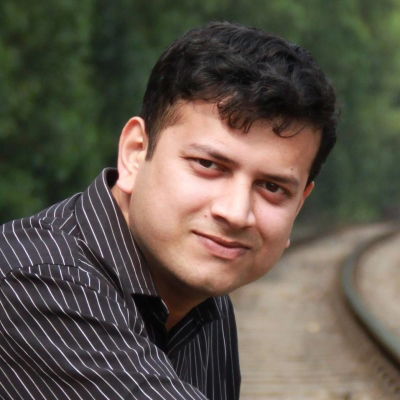
Hillol Sarker, who earned his Ph.D. from the University of Memphis while working on MD2K research, has accepted a position with the IBM Thomas J. Watson Research Center as a Postdoctoral Researcher in Healthcare Effectiveness.
Dr. Sarker, who received his Ph.D. in December, studied under Dr. Santosh Kumar at UofM. His work identified the precise timing for just-in-time stress interventions and developed a machine learning model to predict significant stress episodes before they occurred. His research also discovered a method to assess the availability of users to engage in just-in-time intervention in the natural environment. His doctoral dissertation was titled “From Markers to Interventions – The Case of Just-in-Time Stress Intervention
“Given the ubiquity of stress in daily life and its wide-ranging adverse impact on physical, psychological, behavioral and social health, I believe that being able to predict and prevent health-adverse behavior will improve health and quality of life for everyone,” he said.
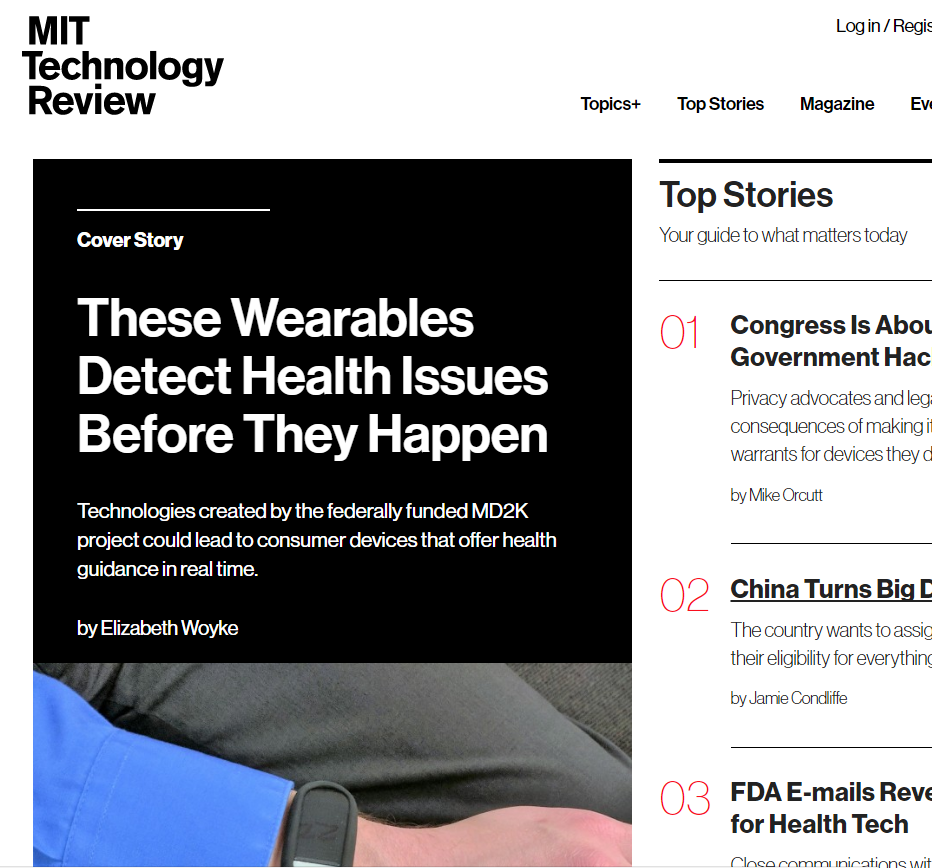 The MIT Technology Review featured MD2K in a cover story in its Nov. 30 issue. The article, "These Wearables Detect Health Issues Before They Happen," focuses on sensor technology created by MD2K that collect raw sensor data via a smart watch and/or chest band. The technology contained in the EasySense chest band and MotionSense smart watch was developed by MD2K Sensor Technologist Emre Ertin of The Ohio State University.
The MIT Technology Review featured MD2K in a cover story in its Nov. 30 issue. The article, "These Wearables Detect Health Issues Before They Happen," focuses on sensor technology created by MD2K that collect raw sensor data via a smart watch and/or chest band. The technology contained in the EasySense chest band and MotionSense smart watch was developed by MD2K Sensor Technologist Emre Ertin of The Ohio State University.
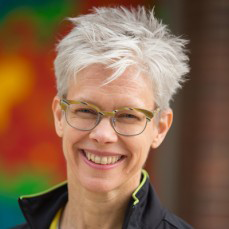
Two members of the MD2K team will participate in IEEE Wireless Health 2016, a three-day conference held at the National Institutes of Health, October 25-27.
Susan Murphy, Ph.D., a statistician from the University of Michigan, will deliver a keynote address on "Assessing Moderated Effects of Mobile Health Interventions on Behavior." Dr. Murphy is part of MD2K's behavioral health team. Her talk will be on Thursday, October 27.
One of the goals of mobile health, or mHealth, is to translate data from wearable sensors into useful information that can help people monitor and improve their health. One of the ways to do that is by providing a just-in-time intervention, such as a text message or prompt, that is issued based on sensor data collected in real time.
A major research challenge is determining when to intervene. Delivered too often or at the wrong times, an intervention might become ineffective or even counterproductive.
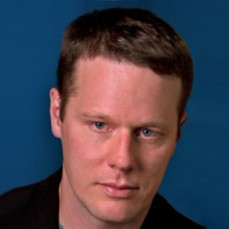 Tyson Condie
Tyson CondieMD2K researchers at the University of California, Los Angeles, have had research papers accepted at two prestigious conferences. Dr. Tyson Condie and Matteo Interlandi, a postdoctoral scholar, were co-authors on both papers.
The research detailed in each of the papers focused on developing processes that help improve large-scale, or Big Data analytics using the Apache Spark cloud computing platform.
Two investigators from the Center of Excellence for Mobile Sensor Data-to-Knowledge (MD2K) will be among 12 scientists selected to participate in SC2: US-India Smart and Connected Communities Workshop, which will bring together the top technology researchers from the two countries.
The MD2K participants are MD2K Director Santosh Kumar and Mani Srivastava who leads the Center’s computation research team. Kumar is the Lillian and Morrie Moss Chair of Excellence in the Department of Computer Science at the University of Memphis, and Srivastava is a Professor of Electrical Engineering and Computer Science at the University of California, Los Angeles.
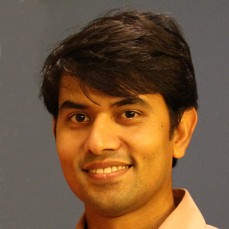
Md Mahbubur Rahman, a Ph.D. candidate working with the MD2K Center of Excellence, has accepted a position with the Digital Health Labs of Nokia Technologies.
The job, as a Researcher in Health Sensing and Monitoring, is located in Silicon Valley, California. Rahman, who will receive his Ph.D. in computer science from the University of Memphis in May, works on medical research and biomedical products for Nokia.
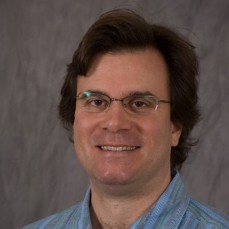
MD2K investigator Jim Rehg (Georgia Tech) is a co-organizer of the Dagstuhl Seminar on Eyewear Computing – Augmenting the Human with Head-mounted Wearable Assistants, held Jan. 24-29 at the Schloss Dagstuhl - Leibniz Center for Informatics.
Rehg's co-hosts were Andreas Bulling (MPI für Informatik), Ozan Cakmakci (Google), and Kai Kunze (Keio University). Dagstuhl Seminars are designed to bring together leading scientists to explore cutting-edge informatics topics. Seminar proposals receive a competitive review and attendance is by invitation only.
The goal of the meeting was to explore how smart eyewear can fundamentally change the way we interact with each other as well as computing systems on our body and in the world around us. Smart eyewear, such as head-mounted displays, head-worn eye trackers, or egocentric vision devices has recently emerged as promising platform for a range of different research fields as well as commercial applications.
Applications are now being accepted for the 2016 mHealth Training Institute, to be held August 8-12 at UCLA.
The 5-day training institute brings together leaders in mobile technology and health sciences for a cross-training event for investigators with interest in mHealth. The training curriculum will cover the current state of the science in mobile technology computing and engineering, behavior change and clinical applications, and highlight the intersection among these areas for research related to health. Daily didactic sessions will target the major cross-cutting research issues. Afternoons will be devoted to small, interdisciplinary teams developing potential mHealth research projects, guided by multidisciplinary mentorship teams.
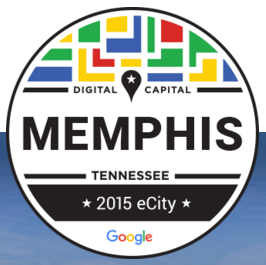
Google has named Memphis its Tennesssee eCity for 2015, and cited the research of the Center of Excellence for Mobile Sensor Data-to-Knowledge (MD2K) as one of the reasons.
“Memphis is a musical city—it's the birthplace of the blues and rock and roll and a hotspot for country. The city also has a technology focus—the University of Memphis has a specialty in sensor research and has pioneered fully-reconfigurable modular body-worn sensors for easy and portable vitality, cardiac, and neurological monitoring,” Google said of Memphis.
The sensor research the Google refers to is being conducted by the MD2K Center, headquartered at the University of Memphis. MD2K is one of 11 NIH-funded national Big Data Centers of Excellence awarded by NIH in 2014 as part of its Big Data-to-Knowledge (BD2K) initiative. The team, comprised of top mHealth researchers from 12 universities and the non-profit Open mHealth, is developing tools that will make it easier to gather, analyze and interpret health data generated by mobile and wearable sensors.
The website EMR and EHR has published an informative 3-part series on Open mHealth’s schema modeling that does a great job explaining the common mobile health schemas and the design principles Open mHealth used in designing its schemas.
The Center of Excellence for Mobile Sensor Data-to-Knowledge (MD2K) has recently launched mHealthHub, designed to serve as a “virtual collaboratory” for the greater mHealth community.
The new website, mHealthHub (mhealth.md2k.org) is a web portal that provides the mobile health (mHealth) community the ability to share information with each other about current research, upcoming events/meetings, software/data/device releases, and funding opportunities. Of particular interest will be a discussion forum, scheduled for launch on December 15, where registered users can discuss issues and challenges encountered in using, developing and deploying mobile sensors and open source software for the collection, sharing, management, analytics, and visualization of sensor data.
Anyone who’s tried to quit smoking knows that the path to success is fraught with challenges. Every day you get up with the best of intentions, but as the day progresses, there are tests.
Finding a way to keep that first lapse from happening would be a huge step towards helping people to remain tobacco-abstinent. And the importance of giving up tobacco cannot be underestimated. Smoking is the leading cause of preventable death in the United States, according to the Centers for Disease Control. One in five deaths, or about 1,300 deaths a day, can be attributed to smoking or exposure to second-hand smoke. For every person who dies from smoking, at least 30 have a serious, smoke-related illness.
If you’re someone who’s trying to quit smoking, the things once associated with smoking – the morning coffee, eating, riding in the car, having a beer with friends – become potential triggers for a lapse. Research has shown that, once that first puff is taken, a person attempting to quit is far more likely to begin smoking again.
As its first year wraps up, the Center of Excellence for Mobile Sensor Data-to-Knowledge (MD2K) has made significant progress towards its goal of using mobile sensor data to realize Precision Medicine.
The MD2K Center is tasked with developing the means to gather, analyze, visualize and interpret health-related mobile sensor data. This capability is critical to discovering new insights on the role of behavioral and environmental context in the onset and progression of disease. The ultimate goal is to develop timely and personalized mobile health interventions for early detection and prevention of adverse health events, which will help realize the vision of Precision Medicine articulated by President Obama in January.
Members of the MD2K team have participated recently in high-level academic and industry conferences on health, sharing information about how mobile health data can be used to further precision medicine.
Dr. Kevin Patrick, Dr. Ida Sim and MD2K director Dr. Santosh Kumar each gave talks on mHealth in different venues in the past week.
On Monday (October 5), Dr. Kevin Patrick, who is part of the MD2K Thrust 1 Team (Sensor Data to Information), participated in a panel discussion at the Health 2.0 Fall Conference, which showcases new healthcare technology. It was held in Santa Clara, Cal.
Several researchers from the MD2K Center participated recently in the 2015 mHealth Training Institute (mHTI), a week-long boot camp held in late August at the University of California, Los Angeles.
The institute, funded by the National Institutes of Health (NIDA.OBSSR), brought together established mHealth researchers and an invited group of 35 mHealth scholars chosen from more than 170 applicants. The institute’s students included 30 Ph.D.-level participants and 5 Ph.D. students or postdocs affiliated with the MD2K Center.
The multi-disciplinary group of scholars represented 10 different disciplines and 27 institutions from across the country.
The 35 scholars were divided into five groups, each with two faculty mentors. A total of 23 faculty, 12 core and 11 visiting, were on hand for the week-long program.
Dr. William Abraham, who heads the MD2K research team focused on congestive heart failure, recently was honored as one of the most highly cited researchers in the world for 2015 and also as one of the top doctors in America.
For the second year, he was named a Highly Cited Researcher by Thomson Reuters. The annual list recognizes leading researchers in sciences and social sciences around the world. The list includes researchers whose papers are listed in the Web of Science Core Collection and are among the top 1% most cited in their subject field according to Essential Science Indicators for the period of 2003-2013.
We are almost halfway through Year 2, and it’s very clear that the entire MD2K team has been busy! The first studies have been launched, and the center is approaching its first software release in December. Papers have been accepted and presented at multiple conferences as MD2K projects move forward. As we prepare for the MD2K Annual Meeting (Sept. 14-16), here is a rundown on the team’s accomplishments for the period between April 2015 and September 2015:
We have had two late-breaking news events this week:
A paper co-authored by an MD2K investigator won Best Paper and Best Community Paper honors at the Annual International Conference on Mobile Computing and Networking (MobiCom 2015), currently underway in Paris, France.
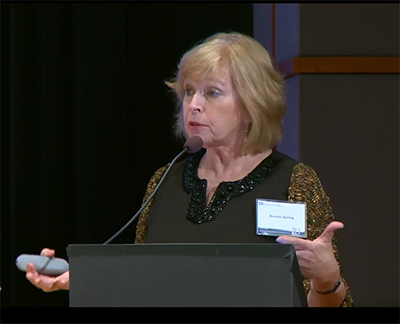
The ubiquitous nature of the mobile phone is a game-changer for researchers focused on mobile health, Dr. Bonnie Spring of Northwestern University told a group gathered to mark the 20th anniversary of the National Institutes of Health’s Office of Behavioral and Social Sciences Research (OBSSR).
Speaking to a day-long research symposium held in late June, Spring, a professor of preventive medicine, psychology, psychiatry, and public health defined mobile health as health promotion of all kinds supported by mobile devices. It’s the sensors in the mobile devices that have great potential as detectors of changes in a person’s state of risk.
When researchers use sensor data to identify when a person is smoking, they face a conundrum: How to discern the act of taking a puff from the myriad gestures a person can make?
There are a variety of sensors at the researchers’ disposal, Dr. Santosh Kumar told attendees at a research symposium held in late June as part of events held to mark the 20th anniversary of the Office of Behavioral and Social Sciences Research (OBSSR) at the National Institutes of Health.
Kumar is director of the MD2K Center, funded by the National Institutes of Health as part of its Big Data to Knowledge (BD2K) initiative. MD2K’s research is aimed at using mobile technology – sensors that are worn on or near the body or contained in the mobile phone – to help identify and predict the risk factors that lead to disease. Ultimately, the information gained through the research will be used to provide interventions aimed at improving a person’s health. The research center brings together experts in the fields of computer science, engineering, medicine, behavioral science and statistics from 12 universities and the non-profit Open mHealth.
New York City's public radio station is working to boost its impact by helping listeners understand the ways their daily habits affect their health.
WNYC's health news unit is looking for research partners that are interested in how mobile technology can help people track and improve their health.
The station was the recipient of a $1 million lead grant from the Robert Wood Johnson Foundation to create a staff devoted to health coverage -- everything from policy to personal health.
The research community funded by the National Institutes of Health's Big Data-to-Knowledge (BD2K) initiative has grown with the award of 15 NIH grants to researchers developing software tools for biomedical Big Data applications.
The awards, totaling $6.8 million in this fiscal year, are part of the Targeted Software Development program within the BD2K initiative. According to a release by NIH, the grants "represent innovative and collaborative approaches to common challenges across several areas of biomedical data use."
| In this newsletter: • Update • Precision Medicine • Software Release • Webinar Series • Honors, Recognition • Additions to MD2K • Upcoming Events • Profiles in Excellence: CWPHS • Stanford Mobilize • |
The MD2K Center is still in its first calendar year, but has already begun Year 2 as an NIH Center of Excellence. It’s been a very exciting time. In this newsletter, we’ll tell you about some of our sensor tools, MD2K’s participation in the Precision Medicine Initiative, the launch of our webinar series, some new faces at MD2K, upcoming events, and introduce you to one of our MD2K sites as well as a center in the broader BD2K community.
Our first newsletter begins with an update from Center Director Dr. Santosh Kumar of the University of Memphis:
A paper co-authored by graduate students advised by MD2K Deputy Director James M. Rehg earned a best student paper prize at the 11th IEEE International Conference on Automatic Face and Gesture Recognition (FG 2015), held May 4-8 in Ljubljana, Slovenia.
In addition, two other papers co-authored by Rehg’s students will be presented at a top conference on computer vision in June.
None of the papers was directly supported by MD2K; each involved work done before MD2K received its award from the National Institutes of Health in October as part of the Big Data to Knowledge Initiative. However, the work is noteworthy because the papers all involve first-person vision and describe methods that will likely be used in future MD2K research.
The MD2K Center has not only brought together the top investigators in mobile health, but also a group of dedicated student researchers who work with them. This is the one in a series of profiles of the students and postdoctoral scholars who are working with the center.
Yamin Tun is a computer science graduate student at the University of Massachusetts Amherst, where she is advised by Dr. Deepak Ganesan. Originally from Yangon, Burma, she earned her bachelor's degree in engineering from Smith College. Tun became interested in the MD2K Center through her work with the UMass Amherst Sensor Lab.>
A recent survey indicates that millennials, the tag given those aged 18-34, have a very different idea of how they'd like to manage their healthcare.
SalesForce, a cloud computing firm that specializes in customer relationship management (CRM), surveyed 1,700 adults all of whom have health insurance and a primary care physician (PCP) to produce its "2015 State of the Connected Patient" report.
The report found that, of those surveyed, 76% still use the telephone to make appointments with their PCP, while 25% make appointments in person, and only 13% use the internet or email. Asked about keeping track of their health data, 62% said they rely on their PCP for that, while 36% said they use electronic health records (EHR), 28% maintain a physical record of their own, and 9 percent don't think anyone keeps up with health records.
The MD2K Center has not only brought together the top investigators in mobile health, but also a group of dedicated student researchers who work with them. This is the one in a series of profiles of the Ph.D. students and postdoctoral scholars who are working with the center.

Mahbubur Rahman is a sixth-year Ph.D. student at the University of Memphis, where he is studying under Dr. Santosh Kumar. Rahman earned his bachelor's degree in Computer Science and Engineering from Bangladesh University of Engineering and Technology, and a Master's of Science in Computer Science from the University of Memphis.
A research study released March 17 shows that most healthcare professionals, while they may not currently use mHealth apps in their practices, see the potential for mHealth apps to improve the patient care.
The study, conducted by digital data collection provider Research Now of Plano, Texas, polled 500 healthcare professionals and 1,000 users of health apps in the United States.
Healthcare professionals were asked if they use smartphone technology in their practices; if they thought it helped; what types of patients it helped, and under what conditions mHealth apps would have the greatest potential.
The University of Memphis has an opening for a Research Assistant Professor in its Computer Science Department. This position will work closely with the MD2K Center. Here is the full job listing:
The University of Memphis Computer Science Department invites applications from outstanding candidates with research interests in mobile health (mHealth) and its related subfields including Human Computer Interaction (HCI), Big Data, and Mobile Computing, at the Research Assistant Professor level. Required qualifications include a Ph.D. in computer science or a related discipline, record of publications in mobile health or a related subfield, and prior mentored and/or independent research experience with demonstrated interests in mobile health. This non-tenure track position is for 12 months and is renewable based on performance and availability of funding.
Open mHealth, a non-profit specializing in mHealth research that partners with the MD2K Center, is hosting meetups on both coasts to talk about Apple's ResearchKit, announced last week. One is Thursday in New York City, and the other is Monday in San Francisco.
"With all the recent buzz about Apple’s ResearchKit, what better way to kick-off our communities and series than to discuss the impact of ResearchKit on the clinical research community as well as its impact on Open mHealth," said David Haddad, Executive Director.
Earlier this month, Dr. Santosh Kumar, MD2K Director, and Dr. Kevin Patrick, a center investigator from the University of California, San Diego, participated in the National Institutes of Health Workshop on Building a Precision Medicine Research Cohort.
This workshop was held as part of a new Precision Medicine Initiative announced in January by President Obama. The $215 million initiative is aimed at accelerating patient-oriented biomedical research to give doctors more ways to tailor treatment to individual patients’ genetic makeup.
You can get a great overview of the work MD2K is doing by watching this video of MD2K director Dr. Santosh Kumar's presentation as part of the National Institutes of Health Distinguished Speakers Series.
A recent white paper by The Economist Intelligence Unit (EIU) sheds some light on how the role of mobile technology in health care is changing.
Power to the Patient: How mobile technology is transforming healthcare examines how mobile technologies are being used in healthcare around the globe. To do this, the EIU conducted a survey of 144 healthcare leaders in 23 countries, including those who work in the public and private sectors in healthcare, pharmaceuticals, biotechnology and medical devices.
The study addresses the potential that mobile health technologies have for transforming the way healthcare is administered:
“Most executives surveyed (64%) believe that the ability of new mobile technologies and services to provide greater patient access to medical information ‘could dramatically improve health outcomes.’ A similar proportion (63%) also predicts that ‘greater patient access to their personal data will allow people to make better decisions about their health.’ ”
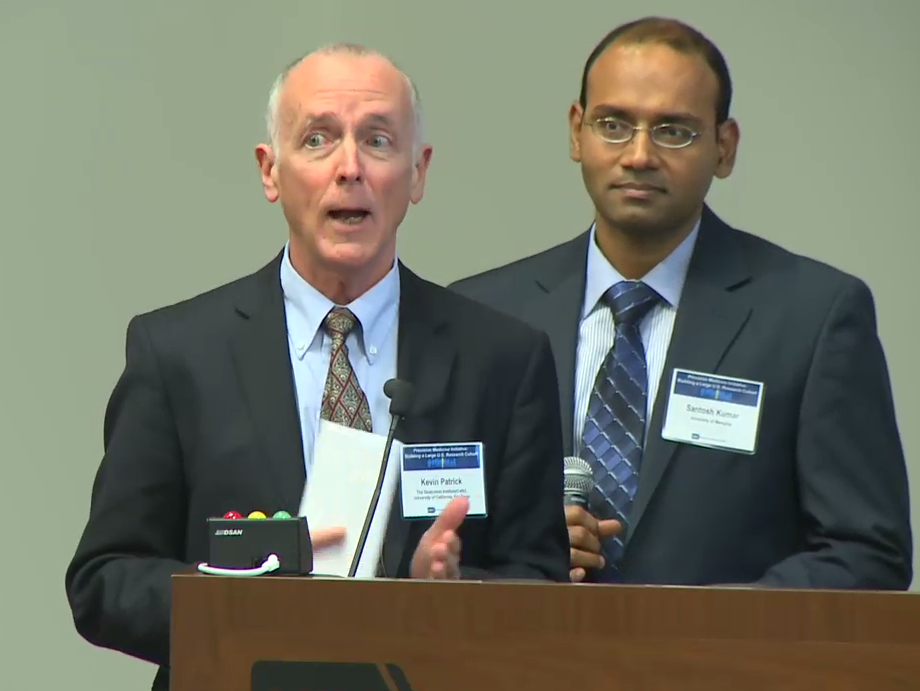
Learn more about the MD2K Center's work on Thursday (2/12/2015) by tuning into the National Institutes of Health (NIH) Distinguished Speaker Series. MD2K Director Dr. Santosh Kumar will be the speaker.
His talk will be 3:30-4:30 p.m. ET and can be accessed via videocast here.
In addition, Kumar and MD2K investigator Dr. Kevin Patrick are participating today and Thursday in the NIH Workshop on Building a Precision Medicine Research Cohort. They will be presenting as part of a session on mHealth Technologies scheduled for 8:40-9:10 a.m. ET.
The MD2K Center is playing an important role in the Precision Medicine Initiative announced Friday (January 30) by the White House.
The $215 million initiative announced Friday by President Obama is aimed at accelerating patient-oriented biomedical research to give doctors more ways to tailor treatment to individual patients’ genetic makeup.
Building on his announcement in his Jan. 20 State of the Union Address, Obama said “Precision Medicine gives us one of the biggest opportunities for medical breakthroughs we’ve ever seen,” Obama said.
The purchase of wearable consumer electronics still lags behind the more traditional forms, but a recent survey of consumers by Accenture indicates more people are including them in their future purchase plans.
The 2015 Accenture Digital Consumer Survey interviewed 24,000 consumers in 24 countries. The survey indicates that some categories of intelligent devices are on the brink of becoming a mainstay of consumers’ lives.
The MD2K Center has not only brought together the top investigators in mobile health, but also a group of dedicated student researchers who work with them. This is one in a series of profiles of the Ph.D. candidates and postdoctoral scholars who work with the center. This time, we are profiling a recent graduate.
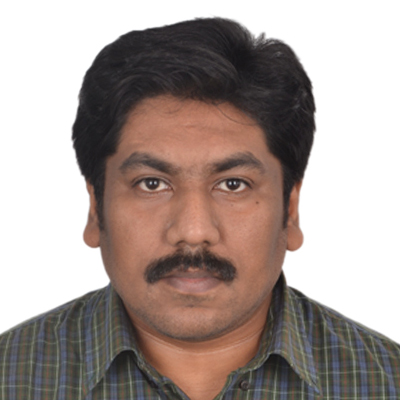
Amin Ali recently completed his Ph.D. in computer science at the University of Memphis, where he studied under Dr. Santosh Kumar, the director of the MD2K Center.
The MD2K Center has not only brought together the top investigators in mobile health, but also a group of dedicated student researchers who work with them. This is the one in a series of profiles of the Ph.D. students and postdoctoral scholars who are working with the center.
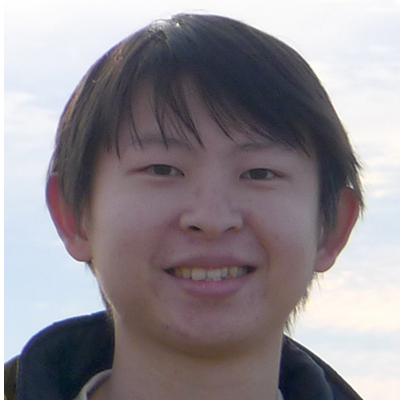
Shang-Tse Chen is a second-year Ph.D. student at Georgia Institute of Technology. Chen grew up in Kaohsiung, Taiwan, and earned his bachelor's degree from the National Taiwan University in Taipei. After working for two years as a research assistant at Academia Sinica, a top research institute in Taiwan, Chen began his studies at Georgia Tech.
The paper “BioGlass: Physiological parameter estimation using a head-mounted wearable device” by Javier Hernandez (MIT), Yin Li (Georgia Tech), James M. Rehg (Georgia Tech), and Rosalind W. Picard (MIT) received the Best Student Paper Award at the 4th International Conference on Wireless Mobile Communication and Healthcare (MobiHealth), held November 3-5 in Athens, Greece. The conference theme was "Transforming healthcare through innovations in mobile and wireless technologies."
The MD2K Center has not only brought together the top investigators in mobile health, but also a group of dedicated student researchers who work with them. This is the first in a series of profiles of the Ph.D. candidates and postdoctoral scholars who are working with the center.
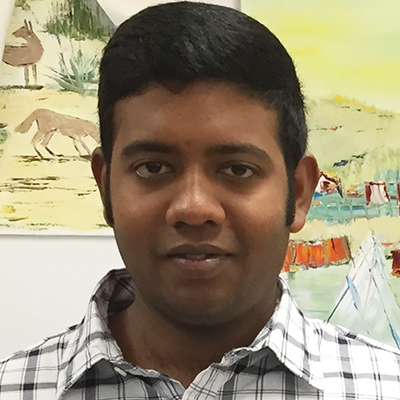
Siddharth Baskar is a second-year Ph.D. student at The Ohio State University. Originally from Chennai in the Indian state of Tamil Nadu, Baskar earned a Bachelor of Engineering degree from Anna University in Chennai and master's degree from Ohio State.
Investigators from the MD2K Center are participating in two events this week focusing on Big Data research in mobile health and development of useful tools for mHealth.
The first, A National Workshop on Computing Challenges in Future Mobile Health (mHealth) Systems and Applications, was sponsored by the National Science Foundation (NSF) and National Institutes of Health (NIH). The meeting was held Oct. 29 at NIH.
The MD2K Center has not only brought together the top investigators in mobile health, but also a group of dedicated student researchers who will be working with them. This is the first in a series of profiles of the Ph.D. candidates and postdoctoral scholars who are working with the center.
Moustafa Alzantot is a native of Tanta, Egypt and currently a first-year Ph.D. student in computer science at the University of California, Los Angeles (UCLA).
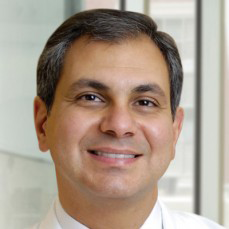 Cardiologist Dr. William T. Abraham, one of the investigators for the MD2K Center, has been named to the Thomson-Reuters Highly Cited Researchers list. Dr. Abraham, who was recognized in the category of clinical medicine, is one of only 3,000 researchers worldwide to earn this distinction, which recognizes researchers whose papers are listed in the Web of Science Core Collection and are among the top 1% most cited in their subject field according to Essential Science Indicators for the period of 2002-2013. He has also been listed as one of the Most Influential Scientific Minds of 2014. Dr. Abraham is Chair of Excellence in Cardiovascular Medicine, Professor of Internal Medicine, Chief of the Division of Cardiovascular Medicine, and Deputy Director of the Davis Heart and Lung Research Institute at The Ohio State University College of Medicine. He spends the majority of his clinical time managing heart failure patients in both inpatient and outpatient settings.
Cardiologist Dr. William T. Abraham, one of the investigators for the MD2K Center, has been named to the Thomson-Reuters Highly Cited Researchers list. Dr. Abraham, who was recognized in the category of clinical medicine, is one of only 3,000 researchers worldwide to earn this distinction, which recognizes researchers whose papers are listed in the Web of Science Core Collection and are among the top 1% most cited in their subject field according to Essential Science Indicators for the period of 2002-2013. He has also been listed as one of the Most Influential Scientific Minds of 2014. Dr. Abraham is Chair of Excellence in Cardiovascular Medicine, Professor of Internal Medicine, Chief of the Division of Cardiovascular Medicine, and Deputy Director of the Davis Heart and Lung Research Institute at The Ohio State University College of Medicine. He spends the majority of his clinical time managing heart failure patients in both inpatient and outpatient settings.
 Susan A. Murphy, Ph.D., one of the principal investigators for the MD2K Center, was among 70 new members announced today by the Institute of Medicine (IOM). Election to the IOM is considered one of the highest honors in the fields of health and medicine. New members are elected by current active members through a process that recognizes individuals who have made major contributions in the fields of medical sciences, public health and health care. Dr. Murphy is the H.E. Robbins Distinguished University Professor of Statistics, professor of psychiatry and research professor at the Institute for Social Research at the University of Michigan, Ann Arbor. Read the National Academies release here. More about Dr. Murphy here.
Susan A. Murphy, Ph.D., one of the principal investigators for the MD2K Center, was among 70 new members announced today by the Institute of Medicine (IOM). Election to the IOM is considered one of the highest honors in the fields of health and medicine. New members are elected by current active members through a process that recognizes individuals who have made major contributions in the fields of medical sciences, public health and health care. Dr. Murphy is the H.E. Robbins Distinguished University Professor of Statistics, professor of psychiatry and research professor at the Institute for Social Research at the University of Michigan, Ann Arbor. Read the National Academies release here. More about Dr. Murphy here.
Some links to coverage of the announcement Oct. 9 of the MD2K Center of Excellence:
Computer science, engineering, statistical and biomedical researchers from 11 universities will spend the next four years developing innovative tools to make it easier to gather, analyze and interpret health data generated by mobile and wearable sensors. The MD2K team, led by University of Memphis computer scientist Dr. Santosh Kumar, will develop novel Big Data solutions to reliably quantify physical, biological, behavioral, social and environmental factors that contribute to health and disease risk.
Turning the wealth of mobile sensor data available through new and rapidly evolving wearable sensors into reliable and actionable health information is one of the next critical frontiers in realizing the vision of predictive, preventive, personalized, participatory and precision (P5) medicine. MD2K’s team is comprised of leading scientists from Cornell Tech, Georgia Tech, Northwestern, Ohio State, Rice, UCLA, UC San Diego, UC San Francisco, the University of Massachusetts Amherst, the University of Memphis, the University of Michigan, and Open mHealth (a non-profit organization). Together they aim to accelerate progress toward the P5 vision by producing and making widely available open source, extensible and standards-compliant Big Data analytics software for extracting information and actionable knowledge from mobile sensor data.